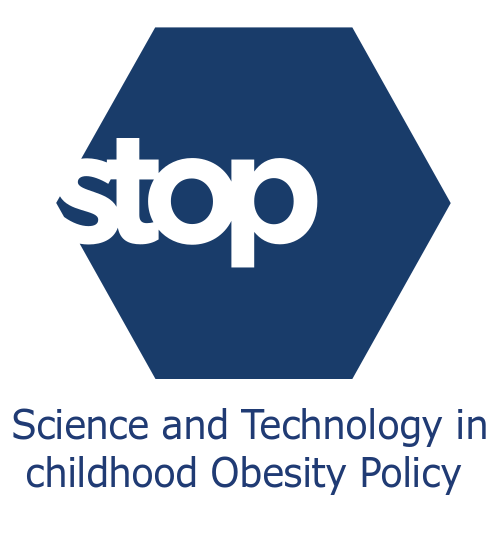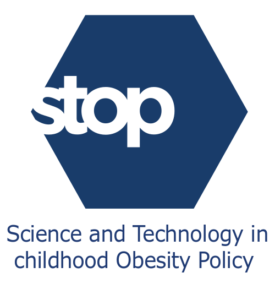Childhood obesity has grown to become one of the most dramatic features of the global obesity epidemic, with dire long-term consequences on health, social and economic outcomes. Obesity has spread to more than one in ten children aged 5-19 throughout southern Europe, in parts of central-eastern Europe and in the United Kingdom, with more than one in three children overweight in countries such as Greece, Malta and Italy. The spread of obesity has been fuelled by changes in social norms and living environments that have led to excessive and imbalanced nutrition, sedentary lifestyles, and ultimately obesity and the diseases associated with it.
STOP (Science and Technology in childhood Obesity Policy) is a Horizon 2020-funded project, which ran from 2018 to 2022, focused on addressing childhood obesity which aimed to expand and consolidate the multi-disciplinary evidence able to inform effective and sustainable policies to prevent and manage childhood obesity. STOP’s primary effort was on highlighting the cumulative impacts of multiple and synergistic exposures in vulnerable and socially disadvantaged children and their families, which must be prioritised to address childhood obesity in Europe. STOP’s research identified critical stages in childhood (starting early on, from prenatal exposures) during which strategic interventions can be most effective and efficient.
Researchers and HCPs
If you are a researcher or health professional, you may find the following sections and materials of particular interest:
Policy makers/NGOs
If you are a policy maker or part of a non-governmental organisation, you may find the following sections and materials of particular interest:
General public
If you are a young person, a parent, or a member of the general public, you may find the following sections and materials of particular interest:




